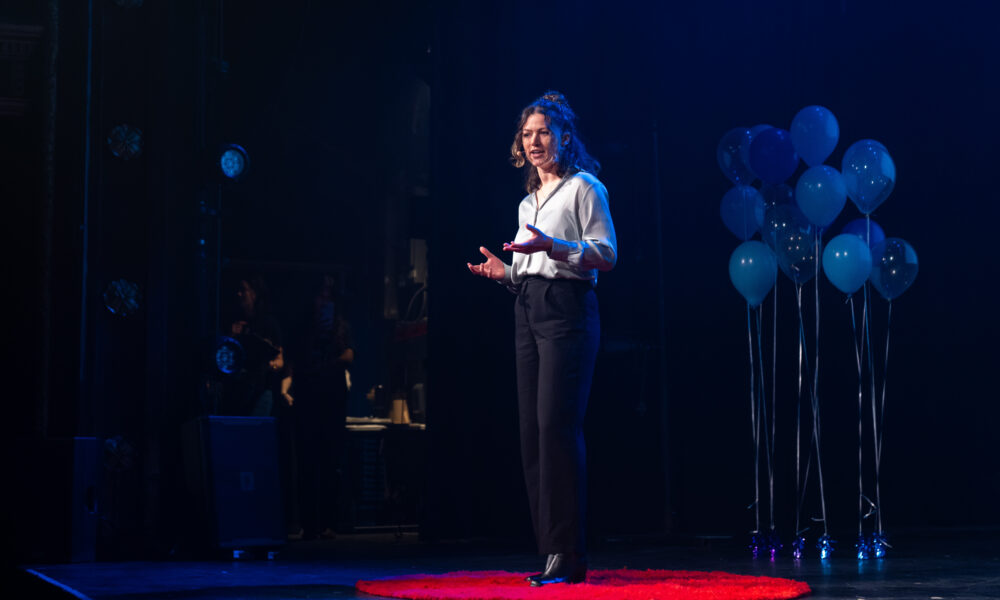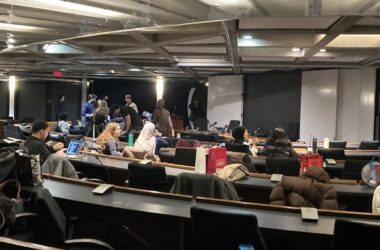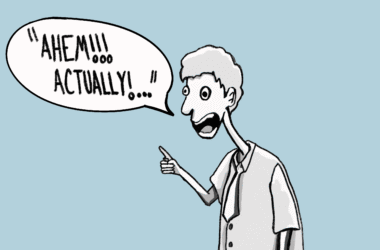TEDxMcGill brought together seven speakers and two performances by McGill students at their annual conference on Feb 9. TEDx events are similar to TED Talks, except that they are independently organized all over the world by community groups who have obtained a free license from TED to use their name and format. In turn, all of the speeches are uploaded to a centralized TEDxTalks library.
“I really love [TEDx’s] international community,” Katherine Squitieri, U3 Arts and Chair of TEDxMcGill said in an interview with The Tribune. “It’s a super strong network of people. You’re constantly in contact with other TEDx leaders, attendees, and members. I think it’s really inspiring to be able to see that so many people are working towards the same goal throughout the world.”
This year’s event featured lectures on a variety of topics, from equality in healthcare, to community-based AI literacy, to reflections on working with cancer patients in an oncology ward. The morning session ended with a performance by McGill’s Soulstice acappella group, and the afternoon kicked off with a dance number from United Groove.
“I hope that people will be inspired to learn more and explore more opportunities to connect with topics that maybe they don’t hear about as much,” Squitieri told The Tribune. “I think that’s the beauty of TEDx: The variety in talks and being able to get snapshots of things that people are so passionate about.”
The organizers for this year’s TEDxMcGill event asked presenters to incorporate the idea of “ripples” into their talks as a guiding conceptual thread, although it was left to individual speakers to interpret the theme as they wanted.
“Ripples are a reminder that even small actions matter, often in the largest ways,” Mikalah Martindale, U1 Arts and VP Communications of TEDxMcGill, said in her opening remarks. “Our speakers today have carefully curated both ideas and stories to share with all of you of ripple effects in their lives, from comedy to human connection.”
Charlotte Spruzen, a PhD candidate at McGill whose presentation focused on a geological response to climate change denialism, began her talk with a very literal reference to the conference theme. As it turns out, physical ripples appear in various materials and along different time scales in the geological record.
“Modern ripples are everywhere [….] You can also find them in rivers, desert sands and lakes,” Spruzen said in her talk. “Ripples are fundamentally transient structures; ripples you see on the beach today will not be the same as the ripples you see the beach tomorrow, and that makes it, in my opinion, mind-blowing that the same structures of ripples can be preserved in rock for billions of years.”
Spruzen went on to describe how climate change deniers misconstrue evidence from the geological record—such as the fact that there have been large spikes in global temperature in the past—and she carefully demonstrated how those claims draw invalid conclusions from valid data.
Coming from a different angle, Michael Zegarelli, Vice-President of Project Management at Colliers Project Leaders, spoke about the wide-reaching ripple effects that can result from seemingly small changes to city design, such as improving parks, infrastructure, and gathering places. Charlie Scholey, U3 Engineering, took yet another perspective, talking about the positive impacts that comedy can have on people.
“If there’s one thing I’ve learned, it’s that everyone has the ability to be funny. Everyone has a sense of humour,” Scholey said in his discussion. “They just need the tools to use it, and then they have to want to use those tools.”







